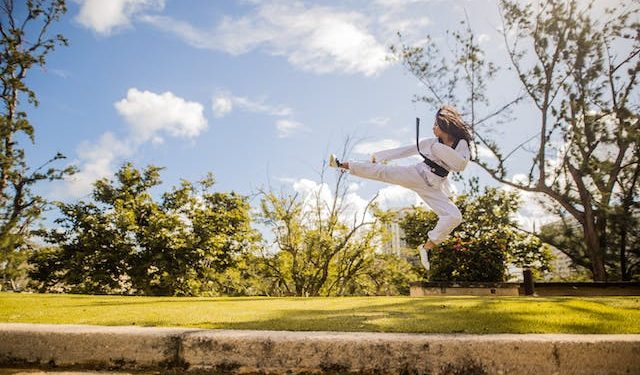When newbies start learning adult martial arts, they have a lot of questions and things to learn. It is essential to know what to expect and have answers to frequently asked questions before beginning this life-changing project. We'll go through commonly asked questions (FAQs) about adult martial arts in this guide, along with some insight into what to expect when pursuing a disciplined practice. This introduction provides a thorough intro to simplifying adult martial arts and offers thoughts into the enriching experiences awaiting those eager to start their martial arts adventure as adults. It covers everything from the fundamentals to the different types of training.
Understanding Adult Martial Arts
Understanding adult martial arts involves a complex understanding of mental toughness, physical conditioning, and self-defense methods designed for experienced practitioners. Adult martial arts instruction, in contrast to children's programs, places a strong emphasis on striking a balance between technique improvement, physical conditioning, and personal growth. It includes a wide variety of sports, such as grappling judo and Brazilian Jiu-Jitsu, as well as the impressive artistry of karate and taekwondo. Adult practitioners participate in organized lessons that include sparring, cooldowns, skill drills, and warm-ups. This creates a disciplined, focused, and supportive environment. Adult martial arts are a fulfilling activity for anyone seeking overall well-being and personal development because they develop mental resilience, self-awareness, and confidence in addition to physical competency.
FAQs about Adult Martial Arts
1. Is martial arts suitable for adults with no prior experience?
Absolutely! For adults of all skill levels, a lot of martial arts schools provide programs that are beginner-friendly. Progression in training is facilitated by instructors who guide beginners through basic skills.
2. What styles of martial arts are suitable for adults?
Adults can choose from karate, taekwondo, Brazilian Jiu-Jitsu, Muay Thai, judo, and Krav Maga, among other techniques. Personal tastes, fitness objectives, and interests all influence the decision.
3. How does adult martial arts benefit physical fitness?
Agility, strength, flexibility, and endurance are all enhanced by martial arts training. It provides a full-body workout that improves muscular tone and cardiovascular health.
4. Can adults with certain health conditions or limitations participate in martial arts?
Yes, in a lot of situations. Before beginning training, people should speak with medical specialists, though. Exercises are frequently adjusted by instructors to meet the needs of each student.
5. What can adults expect in martial arts classes?
Technique drills, sparring, cooldowns, and warm-ups are all common in classes. Along with practical instruction, instructors place a strong emphasis on self-improvement, discipline, and respect.
6. How does martial arts training benefit mental well-being?
Martial arts teach self-control, concentration, and mental toughness. With consistent practice, practitioners gain resilience, enhanced self-confidence, and stress management abilities.
7. Are there age limitations for starting adult martial arts?
Generally speaking, there are no hard age restrictions. Programs for adult martial arts serve a range of age groups, stressing inclusion and customizing instruction to each student's ability.
8. How long does it take to progress in adult martial arts?
Individual work, consistency, and determination all influence progress. Because martial arts expertise is a lifelong process rather than a sudden accomplishment, patience is essential.
9. What should adults consider before joining a martial arts school?
Factors include location, costs, class schedules, school culture, teaching style, and experience of the instructor. Selecting a school that fits with one's objectives is crucial.
10. Can martial arts training promote self-defense skills for adults?
Yes, martial arts places a strong emphasis on useful self-defense methods that adults can pick up and use in everyday life to increase their sense of security and self-assurance.
When it comes to the numerous aspects of martial arts training, its advantages, and what to anticipate while embarking on this rewarding path, these FAQs offer an extensive introduction for people who are thinking about taking up the art form.
What to Expect in Adult Martial Arts
Taking up adult martial arts is an extensive and interesting experience that includes many aspects that support mental and physical growth. When pursuing adult martial arts, one should be prepared for the following:
1. Structured Classes
Adult martial arts classes usually have a set schedule that includes warm-ups, drills for technique, sparring sessions (depending on the style), and cool-down exercises. Because these programs are made to fit a range of skill levels, training is provided in a balanced and gradual manner.
2. Emphasis on Technique and Form
Instructors place a high priority on delivering proper forms and techniques to guarantee appropriate execution, promote skill development, and prevent injuries. More complex techniques are progressively introduced by concentrating on learning foundational motions.
3. Physical Fitness and Conditioning
A thorough workout that improves physical fitness is what to expect. Martial arts training improves stamina, agility, and general fitness levels by combining aerobic exercises, strength-building drills, flexibility exercises, and core training.
4. Development of Mental Discipline
Adult martial arts have a strong emphasis on mental discipline, emphasizing perseverance, patience, and attention. During training, practitioners acquire the ability to maintain attention, using these skills not only on the mat but in everyday life.
5. Sense of Community and Camaraderie
Among practitioners, martial arts schools frequently promote a sense of community. You can anticipate interacting with other students, making friends, and getting support from a wide range of people who have similar interests in martial arts.
Key Considerations Before Embarking
To guarantee a fulfilling and successful experience, it's imperative to address a few important factors before beginning adult martial arts training:
1. Goals and Objectives
Clearly state your goals and objectives. Having specific goals will motivate your martial arts journey, whether it's for stress relief, self-defense, physical improvement, or personal growth.
2. Research Different Styles
Look into several martial arts techniques to see which suits your goals, interests, and physical abilities. Every style has its methods and ideologies.
3. Choose the Right School or Dojo
Choosing the right training school is essential. Analyze instructors' backgrounds, methods of instruction, and overall dojo environment to make sure it's encouraging and learning-friendly.
4. Time Commitment
Think about how much time you can commit to regular training. To advance in martial arts, consistency is essential, therefore be sure your schedule permits regular practice.
5. Financial Planning
Recognize the associated costs, such as those for membership fees, uniforms, and equipment. Make sure they fit into your spending plan before committing.
You can build a solid foundation and realistic expectations for a rewarding and meaningful martial arts training experience by taking into account these important considerations before starting your adult martial arts adventure.
Conclusion
In conclusion, delving into adult martial arts brings forth a wealth of opportunities for personal growth, physical fitness, and mental well-being. Answering frequently asked questions (FAQ) gives clarity on what to expect as one sets out on this life-changing journey and offers insight into the rich and diverse world of martial arts. Adult martial arts offer a route to improved self-discipline, self-confidence, and a supportive group, from choosing the appropriate style and training setting to realizing the social and physical rewards. The path to a happy and gratifying experience in adult martial arts is to embrace this adventure with openness and dedication.























